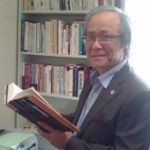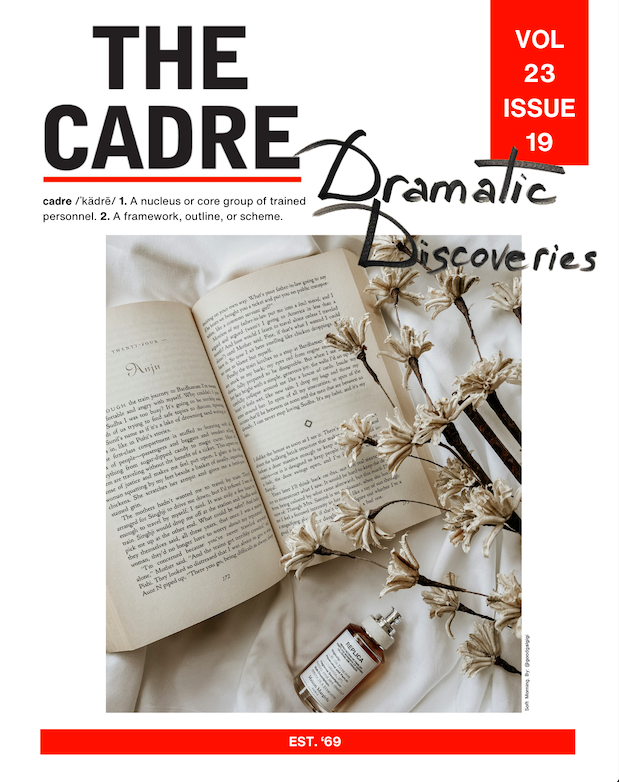By: Drew MacEachern
Dr. Edward Chung, a specialist on East Asian religions in the Department of Religious Studies, as well as the Coordinator of the Asian Studies Program at UPEI, has recently had his second book this year published by the University of Hawaii Press.

The Cadre had a chance to sit down with Dr. Chung to talk about his new books. The most recent book published by Dr. Chung is A Korean Confucian Way of Life and Thought: The ChasÅngnok (Record of Self-reflection) by Yi Hwang (T’oegye). Yi Hwang, also known by his pen name T’oegye, was one of the most influential Neo-Confucian scholars, not only in Korea, but throughout East Asia. He help promote the Zhu Xi school of Neo-Confucianism in Korea by defending and strengthening it. Most notably, he promoted a more spiritual or personally experiential understanding of person, instead of the more rationalistic explanations promoted by most Confucian scholars. Dr. Chung noted that the ChasÅngnok is one of the more interesting of T’oegye’s works since it consists of 4 scholarly essays and 24 personal letters to his students giving a more “holistic representation of scholarship, character, teaching and personal cultivation”, and that it was a “practical, inspiring guide.”
Dr. Chung was approached by Prof. Robert Buswell, the Distinguished Professor of Buddhist Studies and Director of the Center for Buddhist Studies at UCLA, one of the leading scholars in East Asian Studies, to write this book as part of the Korean Classics Translation Project. This Project was funded through UCLA by the Academy of Korean Studies (AKS), affiliated with South Korea’s Department of Education. Along with UCLA and the AKS, Dr. Chung was quick to thank the University’s President, VP-Academic, VP-Research, and the Dean of Arts for their support, both personal and financial, in allowing him to research and publish the book.
Dr. Chung told the Cadre that he originally hesitated at the offer due to difficulty of. However, he decided to push ahead when he realized that the project would be a major contribution to Korean Studies and current scholarship, since this is “the first comprehensive study” of the ChasÅngnok in English. He appears to have judged correctly, going by a review by Prof. Lee Rainey of Memorial University, who said of the book, “Here we have a seminal scholarly work, the result of a three year book project overseen by eminent scholars working with the University of Hawai’i Press……..It is with these two books that we see Dr. Chung’s maturation as a commanding scholar.”
However, this is Dr. Chung’s second published book on Korean Confucianism this year. The first, published this April, was entitled Korean Confucianism: Tradition and Modernity. In contrast to his latest book, this is a more introductory text that examines traditional and modern Korean Confucianism in all contexts, from the ethical, to the social, political, and cultural. Dr. Chung was approached to write this book by the Center for International Affairs (CEFIA), part of AKS, as the third entry in the Understanding Korea Series. This is part of an effort to introduce the topic to a more general audience and contribute to global understanding. The book is not for sale, but can be requested through the CEFIA at their website.
Dr. Chung’s work through the Academy of Korean Studies has not ended with the publication of this book. He is currently working on another three year project with a $80 000 grant from AKS to publish a book to be entitled, The Great Synthesis of Wang Yangming Neo-Confucianism in Korea, as well as to hire student research assistants and Religious Studies sessionals to help him focus on research. He is also in the midst of applying for an external grant which, if awarded, would allow the University to make a “scholarly, academic effort” to expand the Asian Studies Program at UPEI.









